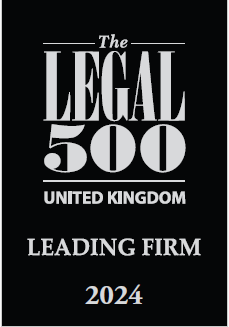Call us now: 0141 429 8166
Call us now: 0141 429 8166
Disability discrimination occurs when employees are treated less favourably than their colleagues because they have a disability or when they are treated unfavourably because of events connected with their disability.
It can be dismissal or leaving someone with no choice but to leave (called ‘constructive dismissal’). But the employee does not have to leave – it be being demoted, ignored, or simply being denied the opportunities being given. Very often it relates to how someone is treated when off sick due to a medical condition. A claim can be made while still employed.
In the context of discrimination law, ‘disability’ has a precise legal definition which is: A physical or mental impairment which has a substantial and long-term adverse effect on your ability to carry out normal day-to-day activities. Common conditions that could be a disability include depression, anxiety, back pain, or even a broken leg. Medical records are usually obtained to support this, but often an Employment Tribunal will also want to hear evidence from the person claiming disability.
Discrimination can occur against people with a disability in a number of ways. Four of them are the same recognised ways that it happens against people due to their age, sex, race, religion, etc.:
In addition, there are another two ways in which discrimination can occur in disability cases:
If you are a disabled person, then your employer is under a duty to make adjustments to their policies, procedures, or premises to avoid your suffering a disadvantage when compared with your colleagues. Your employer should also provide you with any auxiliary aids necessary to ensure you can don’t suffer any disadvantage.
Reasonable adjustments can include installing a ramp in the premises, providing you with an ergonomic chair, or making changes to the company disciplinary policy. The defence to this for an employer is referenced in the term itself – what is reasonable? Each individual circumstance will be different but guidance on this can be obtained from previous cases and the legal interpretation that has been given to the Equality Act.
Discrimination arising from disability is when someone is treated unfavourably because of something arising in consequence of disability rather than the disability itself. This is what makes it different to direct discrimination.
Examples include:
With this form of discrimination, there is no need to compare the treatment with someone else, but you do need to prove the employer knew (or should have known) that you were disabled. The employer can defend the case by arguing that what they were doing was a ‘proportionate means of achieving a legitimate aim.’ Examples would be: running an efficient service, requirements of the business, or wish to treat everyone the same. But it will not be a defence for the employer to simply say that it was going to cost money to eliminate the discrimination.
If you have had a disability claim brought against your company or think you have been treated unfavourably at work because of your disability, then contact our team of expert Employment Lawyers who can advise you about what options you have. We have experience in this area, including in the Tribunal. Call us on 0141 429 8166 or complete our online contact form.
Livingstone Brown is a leading firm of Scottish solicitors. Based in Glasgow, but dealing with cases around the country, the firm has been at the forefront of legal service provision for over thirty years.
If you have a legal problem, getting good quality legal information at the earliest stage can be invaluable. The firm offers a free initial enquiry service; all you have to do is call in, telephone, or e-mail. You won't be charged for your enquiry; we'll let you know by return whether we can help, what we can do, and how much it's likely to cost. We can also offer legal aid where available.
Led by former senior partner Gerard Brown CBE, who continues as a consultant, the firm has built up an enviable reputation for quality of service and client care.
The firm has won various awards over the years. In the 2019 edition of the prestigious Legal 500 rankings Livingstone Brown was ranked as a 'top-tier' firm for general criminal work, and is also recommended for fraud cases. Stuart Munro and Gerard Brown were named as 'Recommended Lawyers'. In the Chambers directory the firm has a Band 1 ranking for criminal work, and Stuart Munro is a ranked financial crime lawyer. The firm was named Criminal Defence Firm of the Year and Family Law Team of the Year at the Scottish Legal Awards 2019.
Reliable, expert advice you can trust. Get in touch today










AWARD WINNING, SCOTTISH SOLICITORS